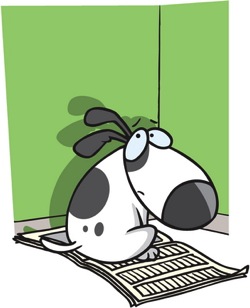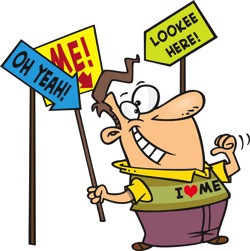Mistakes
 I find the phrase, “You learn from your mistakes” to be incomplete and mostly inaccurate. The Grasshopper brought me new perspective yesterday when he said, “You learn from the mistakes you notice.”
I find the phrase, “You learn from your mistakes” to be incomplete and mostly inaccurate. The Grasshopper brought me new perspective yesterday when he said, “You learn from the mistakes you notice.”
I know I’ve quoted my brother-in-law before who was in the insurance industry. He said many of the people he worked with had been in the profession 25 years but kept repeating their first year over and over. They didn’t learn from their mistakes; they repeated them.
If you don’t realize you are making a mistake, your chances for correcting it are astronomically low.
To make our chances even lower, some of us won’t correct our mistakes, not because we don’t notice them, but because we are in denial about them. You’ve heard the phrase “an accident waiting to happen.” With the addition of denial, it’s more about waiting for an excuse to be issued.
Seems to me there is a direct correlation between the number of excuses issued to the number of mistakes made.
Perhaps to lessen the number of mistakes we make, it would be more beneficial to notice how often we make excuses. The formula is simple: Less excuses = Less mistakes.
So rather than taking mistakes head-on, it may be more productive to go through the back door and remove the excuses. The excuses are the glue that keep both denial and mistakes in place.
Once the bonding capability of an excuse is gone, denials get weaker and mistakes are more easily noticed.
Start noticing your excuses and, before too long, you won’t be asking as often to be excused for your mistakes.
All the best,
John
Be Sociable, Share!

 I’m not big on “right” and “wrong.” I much prefer “works” or “doesn’t work.”
I’m not big on “right” and “wrong.” I much prefer “works” or “doesn’t work.”  Most of us can cite change points in our lives. For me, it was the discovery of “I” and “Me.”
Most of us can cite change points in our lives. For me, it was the discovery of “I” and “Me.”